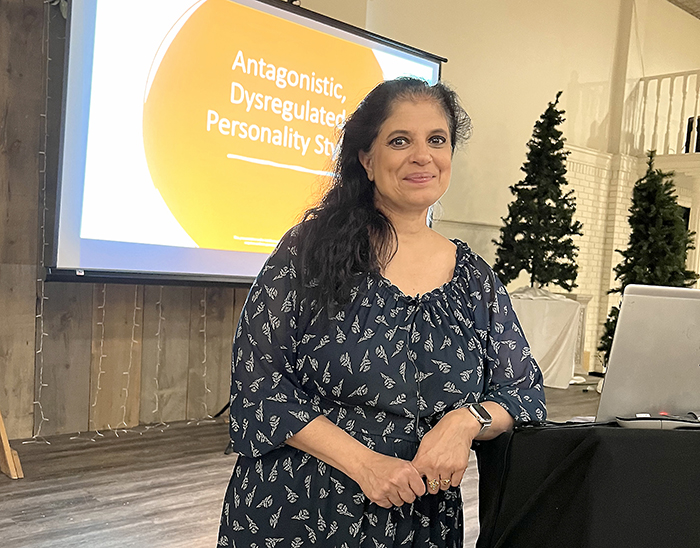
By Pam Wright
Local Journalism Initiative Reporter
Treating problematic personality disorders – such as narcissism – may be the next frontier in the successful treatment of addiction.
That’s the message Dr. Ramani Durvasula delivered to frontline workers and clinicians at the Chatham-Kent Addictions Awareness Conference in Chatham Nov. 16.
The California psychologist and author, an expert on the impacts of maladaptive personalities, said narcissists have been with us since the dawn of humanity, and treatment needs to shift to address the issue.
According to Durvasula, current treatment methods tend to focus on the symptoms of addiction, rather than personality types.
“When we have the conversation about addiction, we often wonder why people aren’t staying sober” Durvasula said. “We need to treat the maladaptive personality.”
To date, the problem of narcissism hasn’t been part of the conversation, the psychologist concluded, noting most therapists aren’t trained to deal with it.
“We still aren’t there,” Durvasula stressed, noting clinicians usually focus on symptomology that’s “most problematic.”
She compared the current methods of treating an addict to buying a house, with people focusing on the doors, windows and the interior, rather than checking the foundation.
“Personality is a constant backbeat that plays in the symphony of a person’s life,”Durvasula noted. “By understanding personality, clinicians can better understand how the addict reacts and copes with life. That understanding can inform treatment.”
Durvasula said it’s hard to “move the needle” on narcissistic personalities, as they pertain to addiction, noting healthy personalities are flexible like trees that bend in a wind storm, whereas rigid maladaptive personalities are the “trees that break.
“Their personality may not change, but at least we might be able to give them some tools to deal with some of the most acute and problematic factors,” Durvasula said.
Frontline clinicians have their work cut out for them, she added, as treating the addicted narcissist is an “uphill climb.”
Society and governments need to step up and make high quality mental health and addiction supports more accessible – something that is sadly lacking across the board, Durvasula said.
Living in the era of social media, where young people think life will be great if they become “influencers or become famous” is an accelerant for narcissism, Durvasula said, adding that the changes wrought by the pandemic also contributed to the problem.
The psychologist commended Chatham-Kent for sparking the discussion on narcissism and addiction calling it “forward thinking.”






